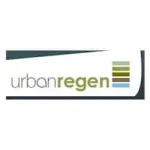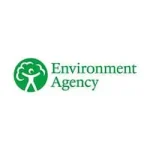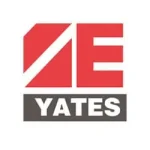Whether you manage a single buy-to-let or an entire portfolio, regular property inspections are no longer a luxury, they’re a necessity. From legal compliance and maintenance issues, to early warning signs of criminal activity, our inspections provide peace of mind, documentation, and professional oversight that protects your investment.
A landlord property inspection is a routine, scheduled visit to a rental property to assess its condition, spot early signs of issues, and ensure compliance with legal and tenancy requirements. These inspections are an essential part of responsible property management, protecting the landlord’s investment, supporting tenant satisfaction, and often preventing costly surprises down the line.
Our professional inspection service goes beyond a quick visual check. We provide documented, photographic evidence of the property’s condition, helping landlords meet their legal obligations while maintaining full visibility on how their property is being treated.
Your rental property is one of your most valuable assets, but even the best tenants can overlook or delay reporting maintenance issues. Regular inspections give you the chance to identify problems early, before they escalate into costly repairs or legal liabilities.
From leaking taps, damp patches, or cracked tiles, to blocked gutters, mould growth, or damaged fixtures, small issues can quickly snowball if left unchecked. Inspections also help you monitor less visible risks like ventilation problems, pest activity, or roof damage, especially in attics, basements, or unused rooms.
By proactively maintaining your property’s condition:
You preserve the long-term value of your investment
You avoid emergency call-outs and high repair bills
You create a safe, habitable environment for tenants
And you reduce the risk of disputes or complaints
Whether it’s a mid-term visit or a check-out inspection, every report gives you the clarity to take action before problems grow — and the evidence to prove you’ve done things properly.
Knowing that inspections are scheduled can encourage tenants to care for the property properly and report issues early, rather than waiting for emergencies. It also helps document the condition in case of deposit disputes or legal claims.
Inspections create an opportunity for tenants to raise concerns in a non-confrontational way. It builds trust and shows you care about the quality of their home.
Landlords have a legal duty to ensure properties are safe, habitable, and maintained to required standards. Inspections help monitor:
Smoke alarms and carbon monoxide detectors
Electrical safety
Gas safety (visual indicators)
General compliance with housing standards
We provide expert property inspection services across the UK, tailored for both private landlords and letting agents, but we don’t stop there. Whether you manage one rental or an entire portfolio, we make inspections easy, compliant, and stress-free.
Private Landlords
From single property owners to HMO landlords, we help ensure your investment stays compliant, safe, and in good condition, without you lifting a finger.
Letting Agents & Property Managers
Outsource your inspection needs to a professional security team you can trust. We offer reports, and scalable services ideal for agencies managing 10 to 1,000+ properties.
Housing Associations – Supporting inspections and reporting for council-managed or private housing schemes
Block Management Companies – Helping identify maintenance, safety or tenant issues across multi-tenant buildings
Landlord Insurance Providers – Providing the documentation and evidence needed to meet insurance conditions
Buy-to-Let Investors – Keeping properties in good standing while landlords focus on growth
Solicitors & Legal Professionals – Offering property reports and inspection documentation for legal or dispute cases
Eviction & Bailiff Services – Ensuring proper documentation and inspection before/after possession
£80
£120
£99
£109
Your rental property is one of your most valuable assets, but even the best tenants can overlook or delay reporting maintenance issues. Regular inspections give you the chance to identify problems early, before they escalate into costly repairs or legal liabilities.
From leaking taps, damp patches, or cracked tiles, to blocked gutters, mould growth, or damaged fixtures, small issues can quickly snowball if left unchecked. Inspections also help you monitor less visible risks like ventilation problems, pest activity, or roof damage, especially in attics, basements, or unused rooms.
By proactively maintaining your property’s condition:
You preserve the long-term value of your investment
You avoid emergency call-outs and high repair bills
You create a safe, habitable environment for tenants
And you reduce the risk of disputes or complaints
Whether it’s a mid-term visit or a check-out inspection, every report gives you the clarity to take action before problems grow — and the evidence to prove you’ve done things properly.
During the first 6–12 months of a new tenancy, more frequent inspections (every 3–4 months) help address early issues, establish expectations, and catch any red flags.
After the tenancy has settled, inspections are typically carried out every 3-6 months, though some landlords opt for quarterly checks, especially with higher-risk properties or remote ownership.
We also conduct formal inspections at the start and end of tenancy, producing documented inventories that support deposit protection and minimise disputes.
During every inspection, we assess the following (where applicable): All findings are documented with photos and summaries in a detailed PDF report.
| Inspection Area | What We Check |
|---|---|
| General Cleanliness & Condition | Overall presentation, hygiene, and any signs of neglect or misuse |
| Maintenance Issues | Leaks, damp, mould, faulty fixtures, or anything needing repair |
| Signs of Illegal Activity | Unusual modifications, smells, wiring, or equipment that raise red flags |
| Safety Compliance | Smoke detectors, carbon monoxide alarms, fire escapes and exits |
| Utilities & Electrics | Functionality and condition of plumbing, heating, electrics and appliances |
| Outdoor Areas | Garden, fences, outbuildings – maintained or overgrown/damaged |
| Loft & Attic Spaces | Inspected where accessible for signs of misuse or tampering |
Skipping inspections may seem harmless, until problems stack up. Common consequences include:
A small leak under a sink. A bit of mould in the corner of the ceiling. These things may seem insignificant at first, but without timely intervention, they escalate. What could have been a £50 repair may become a £1,000 problem, especially if damp, rot, or electrical damage sets in.
Tenants may not always report issues, especially if they fear repercussions or simply don’t notice them. Over time, wear and tear turns into neglect. Broken fittings, damaged flooring, poorly maintained gardens, these add up and lower the value and appeal of your investment.
One of the biggest risks of not inspecting is the potential misuse of your property, such as unauthorised subletting, overcrowding, or illegal activities like cannabis cultivation. These situations not only void your insurance but also leave you with massive repair bills, legal trouble, or even criminal liability.
Inspections are essential for checking smoke detectors, CO alarms, and general safety standards. If something fails and a tenant is injured, or worse, the legal and financial consequences can be devastating. Regular checks show you’ve met your duty of care.
Most landlord insurance policies include a clause requiring regular inspections, especially for vacant properties. If you make a claim and can’t show evidence of inspections, you could be denied a payout, leaving you financially exposed.
Regular inspections signal that you’re a proactive, responsible landlord. Skipping them can give tenants the impression that you don’t care or that they can get away with neglecting the property. Over time, this erodes respect and trust.
A property inspection isn’t about catching tenants out, it’s about protecting your investment, fulfilling your responsibilities, and maintaining a professional standard of care.
Whether you’re a private landlord managing one home, or a letting agent with dozens of properties under management, we can help you stay protected, informed, and compliant.












